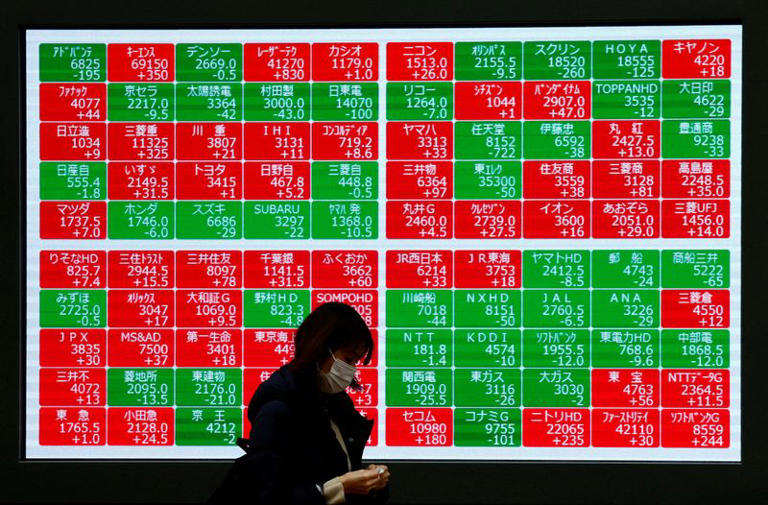On Monday, Asian stock markets experienced a downturn, with traders reassessing their expectations for potential Federal Reserve rate cuts amid signs of a still-tight U.S. labor market. This cautious sentiment was compounded by wider political concerns sparked by French President Emmanuel Macron’s surprise announcement of snap legislative elections later in the month. While several major Asian markets, including Australia, China, Hong Kong, and Taiwan, were closed for public holidays, MSCI’s broadest index of Asia-Pacific shares outside Japan declined by 0.46%.
The decline in Asian stocks reflected a halt in the global risk rally, which was partly triggered by Friday’s release of the U.S. nonfarm payrolls report. The report revealed that the U.S. economy added significantly more jobs than expected in May, while annual wage growth accelerated, underscoring the resilience of the labor market. As a result, traders reevaluated their expectations for Federal Reserve rate cuts, with futures now indicating a reduction from 50 basis points to approximately 36 basis points priced in. This adjustment came ahead of the Fed’s upcoming policy decision and the release of U.S. inflation figures for May.
Rob Carnell, ING’s regional head of research for Asia-Pacific, noted the evolving expectations for Fed rate cuts, suggesting that while a reduction from three cuts to two is the most likely outcome, there is also the possibility of just one cut. The revised rate expectations led to a rise in U.S. Treasury yields on Monday, signaling a higher-for-longer outlook for interest rates.
In Japan, the Nikkei index rose by 0.42%, benefiting from a weaker yen. Meanwhile, investors awaited updates from the Bank of Japan’s (BOJ) two-day monetary policy meeting, during which the central bank may provide guidance on its bond purchase plans.
However, in Europe, Macron’s announcement of snap legislative elections in France following his party’s defeat in the European Union vote sparked concerns about political stability. The decision, viewed as a calculated risk, raised uncertainty over Europe’s future political direction and caused the euro to decline to a one-month low against the dollar. Futures for European stocks also fell, reflecting investor unease over the potential impact of the political upheaval in France.
Overall, market participants remained cautious amid shifting rate expectations, geopolitical developments, and ongoing economic data releases. Traders closely monitored central bank policies and political events for further guidance, highlighting the continued sensitivity of global markets to economic and geopolitical factors.
